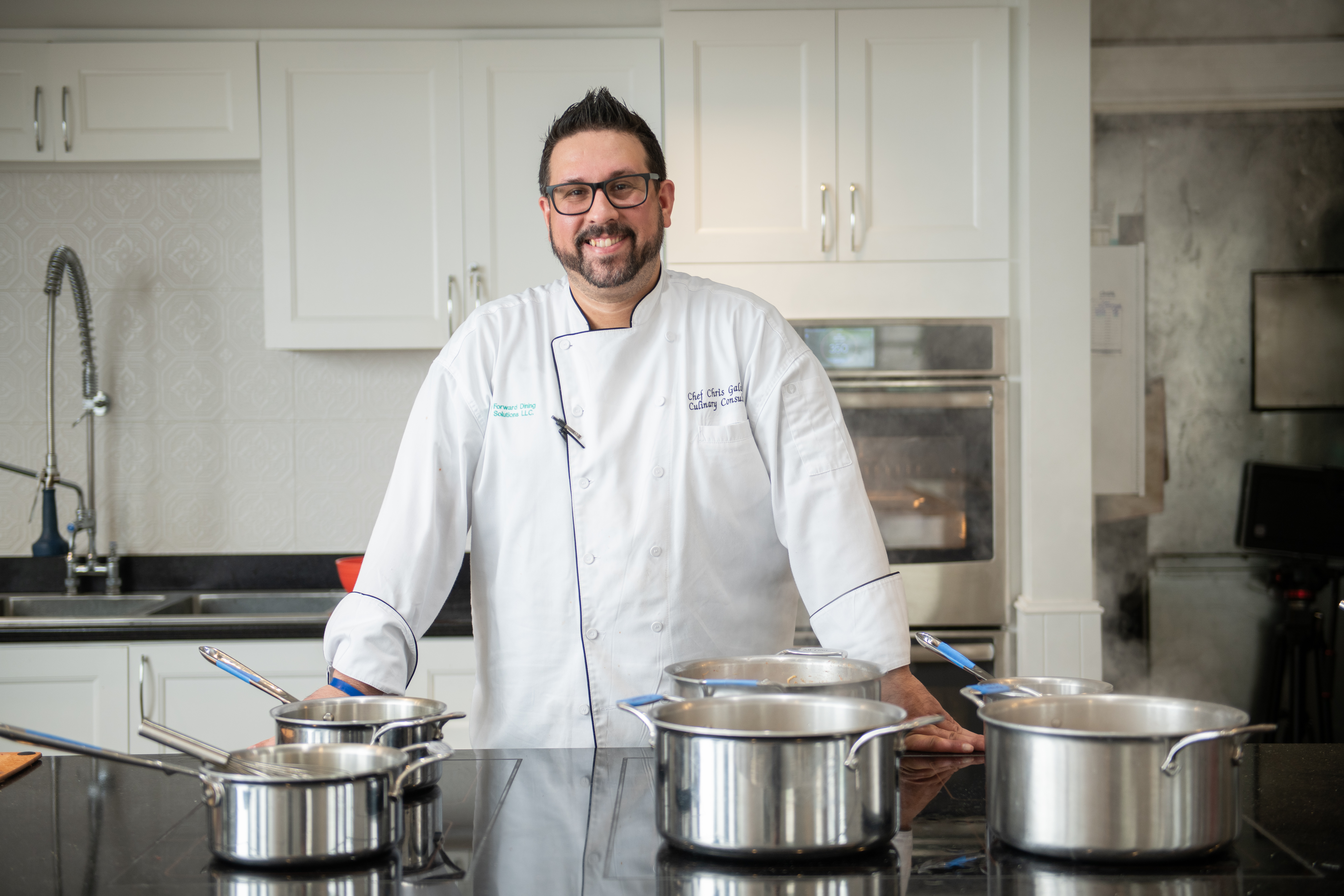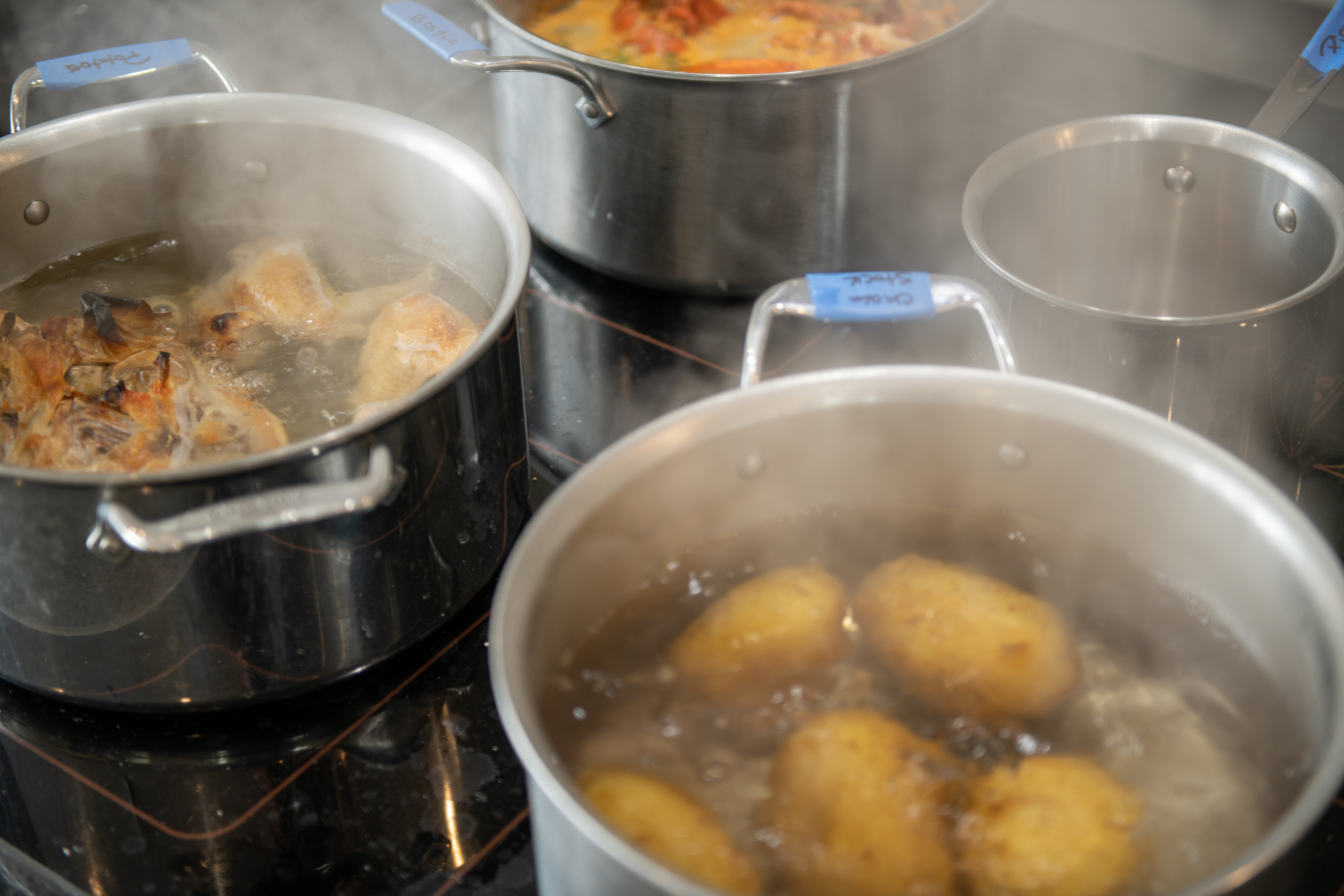Blog

Food for Thought: Induction Cooking
Food for Thought is a blog series all about Phipps sustainability efforts surrounding food! From the Edible Garden to Phipps Culinary Arts courses, there is so much to learn about the ways Phipps dishes out sustainable food practices.
The foodservice industry requires an immense about of food preparations, kitchen equipment and more to withstand its robust workload. Yet, it’s difficult to find sustainable practices to implement within this ever-growing industry. One of the major factors of unsustainable practices are the kitchen appliances themselves! Traditional gas stoves give off emissions that can harm the environment, resulting in a large carbon footprint. A solution to this problem is induction cooking technology! Founder of Forward Dining Solutions LLC and co-founder of EcoChef, Chef Chris Galarza, tells us all about cooking with this technology below!

Cooking with induction technology means that electromagnetic energy is used to heat cookware directly, rather than typical gas or electric resistance heating. Chef Chris says, “Essentially, when you place a compatible pan on an induction cooktop, the energy creates heat within the metal of the pan itself, which then cooks the food.” He explains that this technology gives you precise control and faster heating while keeping your cooktop much cooler compared to traditional methods.
The energy efficiency is one of the primary reasons why induction cooking is a better choice for the environment. Chef Chris says, “With induction, nearly all the energy goes directly into the food you're cooking. That efficiency means less energy waste and, in turn, a smaller carbon footprint. Moreover, all-electric kitchens powered by renewable energy eliminate the emissions associated with burning fossil fuels in kitchens, making it a crucial step toward decarbonizing the food industry.”
For Chef Chris, his commitment to sustainability is something he always puts at the forefront of his cooking. This is why he began using induction cooking in the first place! He says, “I started exploring induction as part of my journey toward sustainability, realizing that it offered the control and performance I needed, while also aligning with my commitment to environmental responsibility.”

On Tues., Sept. 11, Chef Chris became the first ever chef to take and pass the ACF’s Certified Executive Chef (CEC) exam entirely on induction technology. He says, “When the opportunity to take the ACF’s Certified Executive Chef (CEC) exam arose, I saw it as a chance to challenge not only myself but also the perception of what all-electric kitchens can achieve at the highest levels of culinary excellence.”
After several years of teaching Culinary Arts courses through Phipps Adult Education, Chef Chris knew Botany Hall Kitchen at Phipps Conservatory was the perfect place to take his exam. Botany Hall teaching kitchen implements leading-edge efficient technology in efforts to help community members discover ways to prepare food that is good for people and the planet. In addition to a written exam, Chris was able to produce three courses from scratch in three and a half hours, mastering four classical cooking techniques entirely through use of induction technology. He says for him, “it wasn't just about passing the test; it was about proving that high-level, professional cooking can be both sustainable and innovative.”
If you’re a beginner interested in trying you hand at induction technology, Chef Chris has some tips for you!
- Start by understanding that it heats up much faster than what you may be used to, so keep an eye on your pans!
- Use cookware that’s induction-compatible, like stainless steel or cast iron.
- Don’t be afraid to experiment. Once you start using it, you’ll see how much it elevates your cooking experience!

